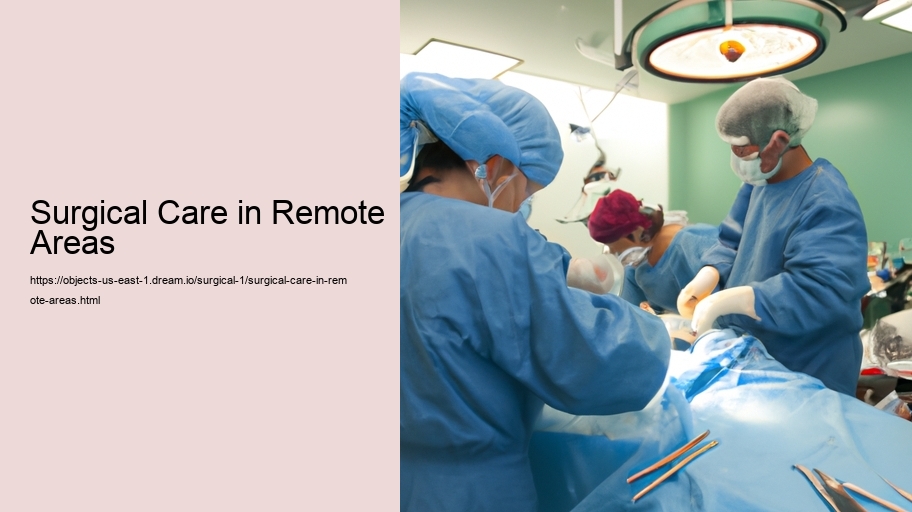Surgical Care in Remote Areas: Navigating Challenges and Improving Outcomes
Surgical care is an indispensable component of healthcare, providing life-saving and life-improving interventions for a myriad of conditions. However, access to quality surgical care is not evenly distributed across the globe, with remote areas often facing significant barriers that can lead to dire consequences for the populations living there.
Remote areas, whether they be rural regions, isolated islands, or underserved urban communities, typically grapple with a lack of resources that most urban and suburban areas take for granted. This scarcity spans from the absence of skilled healthcare professionals to the unavailability of essential facilities and supplies. The combination of these factors creates a challenging environment for delivering surgical care, affecting both providers and patients.
In remote areas, healthcare professionals may have to work without the support of a full medical team. Surgeons often double as anesthesiologists, nurses, and even managers. This multi-faceted role demands not only a broad skill set but also an extraordinary level of resilience and adaptability. Moreover, the limited number of healthcare professionals can lead to burnout due to the high demand and pressure, potentially compromising the quality of care.
Facilities in remote areas often lack the necessary infrastructure for complex surgeries. Operating rooms may not be equipped with the most advanced technology, or they may not exist at all. In some cases, surgeries are performed in makeshift environments that are not designed to maintain the sterility and controlled conditions required for safe surgical procedures. This increases the risk of infections and complications, endangering patient outcomes.
Another critical issue is the supply chain. Access to surgical supplies, medications, and blood for transfusions can be erratic due to transportation difficulties and limited storage capabilities. This can lead to cancellations or delays in surgeries, sometimes resulting in the advancement of diseases to stages that are more difficult, or even impossible, to treat effectively.
Despite these challenges, there are strategies and initiatives that can improve surgical care in remote areas. Telemedicine is one such innovation, enabling surgeons in well-equipped centers to advise and assist their remote counterparts through video conferencing. This real-time guidance can improve the quality of care and outcomes for patients.
Education and training programs specifically designed for remote area conditions can empower local healthcare professionals to perform a broader range of procedures safely. Task-sharing, where non-physician healthcare workers are trained to perform certain surgical tasks, is another method to address the shortage of surgeons.
Global health organizations and governments can also play a role by investing in infrastructure, such as constructing adequately equipped surgical centers and improving transportation networks to ensure reliable delivery of medical supplies. Additionally, incentivizing healthcare professionals to work in remote areas through loan forgiveness programs, higher wages, or career development opportunities can help alleviate the shortage of skilled providers.
Community involvement is also crucial. Educating the local population about the importance of surgical care and involving them in health system planning can lead to more sustainable and culturally appropriate healthcare solutions. Moreover, community members can be trained as first responders to provide initial care and facilitate safe transport of patients to surgical facilities.
In conclusion, providing surgical care in remote areas is fraught with challenges, but with targeted interventions and collaborative efforts, it is possible to bridge the gap between remote and urban healthcare services. Improving surgical care in these regions is not only a matter of health equity but also a critical investment in the well-being and development of communities that are often overlooked. By addressing the unique needs of remote areas, we can ensure that every individual has the opportunity to receive the life-saving and enhancing benefits of surgical care, regardless of their geographic location.
